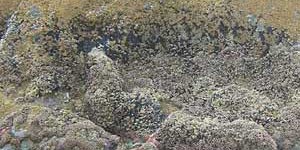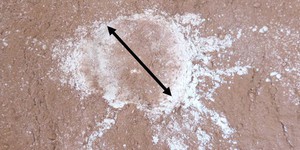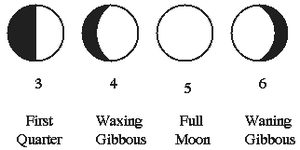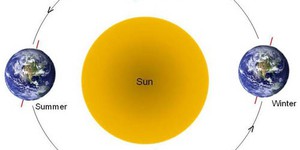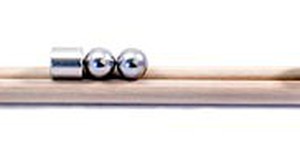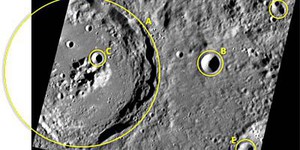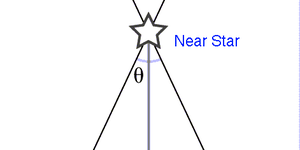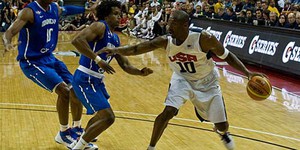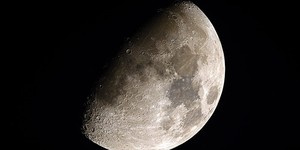Others Like “The Moon and Tides” (top 20 results)
|
Renewable energy is the energy that is extracted from natural sources, such the Sun (solar), earth (geothermal), wind, and water (hydropower). These sources are renewable because they can be replenished by the same natural sources within a short period of time. Hydropower energy is extracted from moving water, like ocean wave energy and tidal energy. In this energy science fair project, you will make a model of a tidal barrage (also known as a dam) and investigate how emptying the tidal barrage…
Read more
Have you ever been to a tide pool during low tide? Some intertidal animals in the low tide zone are left in a tiny pool of water when the tides go out. Other intertidal animals that live in high tide zones may be left to dry out during low tide. How much time does each zone spend out of water during a tidal cycle?
Read more
Have you ever heard someone say that the moon is made of cheese? Even though the craters on the surface of the moon resemble holes in Swiss cheese, we know that this common myth is not true. Find out how craters are formed and why they are different sizes by doing this simple science project.
Read more
Everyone loves looking at the full moon, but are these nights the best time to go stargazing? Can the moon interfere with certain astronomical observations?
Read more
Do you live someplace where you get to experience the full glory of all four seasons? If so, you know well the heady blossoms and dramatic skies of spring; the long, sun-drenched days of summer; the trees shaking in crimson and gold in fall; and the sparkling, brittle snows of winter. But you might not know why we have these seasons, over and over again, in a cycle as predictable as the rising and setting of the Sun. The reasons for the seasons are surprising and have to do with Earth's tilt…
Read more
What can you do with magnets and ball bearings that makes a lot of noise? Why, build a magnetic linear accelerator, called a Gauss rifle, of course! Now, this magnetic accelerator is not a weapon, but a way for you to learn a lot more about physics concepts, like momentum. In this physics science project, you will investigate how far a ball bearing launched by a Gauss rifle will fly, depending on how many magnetic acceleration stages are in the setup and the ball bearing's initial velocity.…
Read more
Have you ever wanted to analyze data from a NASA spacecraft? In this science project you will use data from NASA's MESSENGER mission to measure the diameter and calculate the depth of impact craters on Mercury. You will then analyze that data for relationships between a crater's depth and diameter. This is your chance to
perform a science project as a NASA researcher would!
Read more
Do you enjoy going stargazing? In a good location on a clear night, you can see a huge number of stars twinkling in the night's sky. Have you ever wondered how far those stars are from us? Ancient astronomers actually discovered a way figure this out, measuring the distance from Earth to faraway stars. How did they do it without modern technologies? In this astronomy science project you will find out by exploring the link between the distance of an object and perspective (also known as…
Read more
Playing basketball can be hard work. Players not only constantly run around the court, but just dribbling the basketball takes a lot of effort, too. Why is that? It has to do with how the basketball bounces. When the ball hits the court, its bounce actually loses momentum by transferring some of its energy into a different form. This means that to keep the ball bouncing, players must continually put more energy into the ball. In this sports science project, you will determine how high a…
Read more
Sometimes a full moon can be so bright, you can walk around in the dark without a flashlight. How much brighter is a full moon than the other phases of the moon? How is the brightness of the moon measured?
Read more
|
Explore Our Science Videos
Design and Make Automata
Iteration in the Engineering Design Process
Make 3D Printed Optical Illusions




